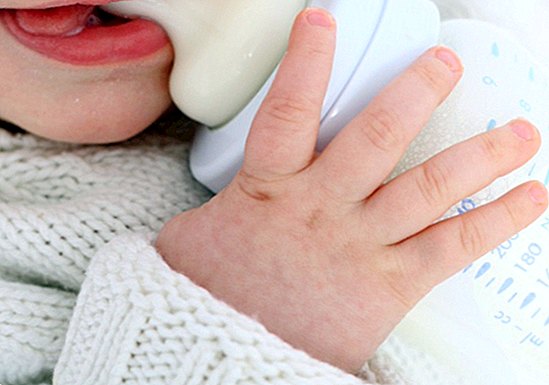How to know when the baby is hungry? Warning signs

Although it is usually thought otherwise, and we usually tend to believe that it is a sign of hunger, did you know that, in reality, crying is a rather late indicator? This is indicated by many pediatricians, who agree that when the baby cries - and has not eaten in a long time - it could be a sign of hunger. But, in turn, the baby may cry for other reasons. So, how can we know when the child is really hungry?
There is no doubt that crying becomes the way babies communicate with the environment in which they develop, particularly with mom and dad. But the reality is that crying is not always a sign of hunger. That is, when the child cries does not necessarily mean he is hungry.
For example, the baby may cry because it is too hot or too cold, because of boredom, over stimulation, or because they simply need to change their diapers or hug them. Thus, it may happen that the child is sleeping in the crib or in his bed, and start crying because he feels lonely and needs to feel the warmth of his parents.
For this reason, it is usual that especially at the beginning, first-time moms and dads find it difficult to know if the baby is crying because of hunger, or if nevertheless something else happens to him or if he has some other need.

In this sense, the truth is that not knowing when the baby is hungry may be more common during breastfeeding and feeding on demand (the most recommended and recommended), since when we feed the baby bottle is more usual to control the distance between the shots.
Luckily, there are a number of signs or signals that could clearly indicate that a baby is hungry. Do you know which ones they are? The most common are the following:
- He puts his hands and fists in his mouth, sucking them hard.
- Put the lips in the same way as if you were to suck.
- Open your mouth and stick out your tongue.
- He moves his head from side to side (a sign that he is trying to find his mother's breasts).
- It rubs against the mother's breasts.
- Moves the mouth in the direction of the element that touches him, or when he caresses the cheek (is what is medically known as a search reflex).
If the baby shows some of these symptoms we can be clearer if he is hungry or not, especially if some time has passed since the last time we fed him (for example, between feedings during breastfeeding or between bottles and bottles).

And what signals can help the mother to know if the baby is satiated or not? Very simple, the most common symptoms are the following:
- Suction slower and slower.
- Loss of interest in the chest.
- Move away from the breast (or bottle).
If these signs appear, you will be sure that the baby's appetite has been satisfied. Therefore, you can calmly end the shot from the moment you detect them.
Images | Istockphoto This article is published for informational purposes only. It can not and should not replace the consultation with a Physician. We advise you to consult your Trusted Doctor. ThemesFeeding the baby


